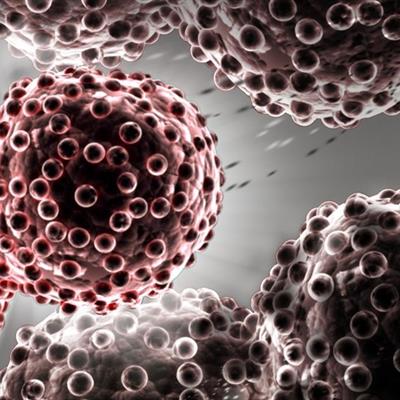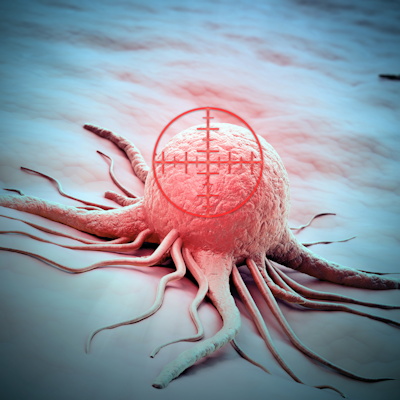October 6, 2022 -- A new gene is responsible for activating an aggressive subtype of small cell lung cancer (SCLC), the P subtype, according to Northwestern Medicine scientists who used genome-wide CRISPR screening and deleted the gene in SCLC cells in vitro and in mice.
Currently, no effective treatment exists for this kind of cancer so identifying the gene makes drug development more possible. When the researchers deleted the gene they dubbed POU class 2 homeobox associating factor 2 (POU2AF2), the cancer cells could not survive (Science Advances, October 5, 2022).
The scientists focused on this gene because the POU class 2 homeobox 3 (POU2F3) is a master regulator of tuft cell identity and defines the small cell lung cancer P subtype. A previously uncharacterized protein, C11orf53, is co-expressed with POU2F3 in both SCLC cell lines and patient samples. The protein directly interacts with POU2F3 and is recruited to chromatin by POU2F3.
When C11orf53 is diminished, that also reduces enhancer H3K27ac levels and chromatin accessibility. The result is less POU2F3-dependent gene expression. In other words, no more cancer. Because of the molecular function of C11orf53, the researchers renamed the protein POU2AF2.
Going forward, the scientists want to develop a more personalized approach to SCLC clinical treatment by targeting mechanisms that contribute to tumor growth based on factors that regulate molecular subtypes. They also believe their findings can potentially serve as a biomarker to identify this cancer at earlier stages.
"This type of cancer is resistant to a lot of drugs and not many studies focus on it," lead author Lu Wang, PhD, an assistant professor of biochemistry and molecular genetics at Northwestern University Feinberg School of Medicine, said in a statement. "By identifying this important gene, we now have a very good drug target to work with."
Copyright © 2022 scienceboard.net










